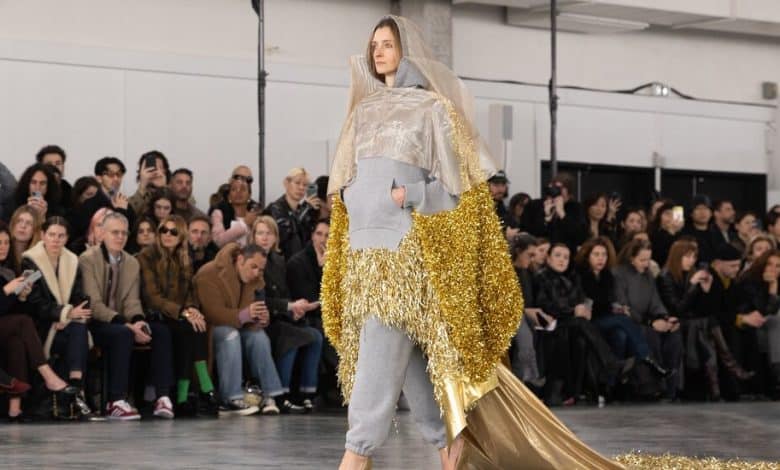Dressing the Forgotten Woman

“As always, she wakes up just before the alarm goes off.”
“As always, she gets up in the dark and walks into the bathroom.”
“As always, she quickly looks into the mirror. Yes, That’s her. Forty years old, mother of one, single, working.”
So went the voice-over at the Undercover show: a prose poem written and read by the film director Wim Wenders. You could practically see the audience sit up in response: Wait. Is he talking about me? Or maybe not me, but my cousin/neighbor/aunt/friend?
Certainly, a woman I know.
Guess how often that happens during a fashion show? Usually never. Conventional wisdom has it that the promise on the runway should be aspirational — the person I want to be (richer, thinner, taller, more fabulous, more rebellious, more sexy, etc.) rather than the person I am.
The person I am is the kind of woman fashion almost never considers. Not because she might be middle-aged (though fashion is famously fixated on the young) but because she isn’t an archetype — a glamazon or a mistress of the universe or a sci-fi queen. Rather, as became clear as the Wenders narration went on, because she is messy and complicated: a lawyer who loves Dashiell Hammett and lipstick and driving fast; Glenn Gould, “Billy Elliot” and fountain pens; her son most of all. For example.
Designers have a tendency to talk about vague “characters” when they are explaining their collections, but it’s rare to find a character who is actually fleshed-out, in all her glorious quotidian complexity, on a runway.